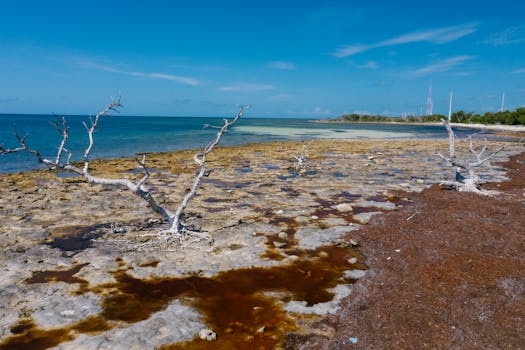
Introduction

The impact of climate change on global ecosystems is a pressing concern that cannot be ignored. As temperatures rise and precipitation patterns shift, ecosystems are experiencing significant alterations. This article will delve into the various ways climate change affects biodiversity, habitat loss, and ecosystem services.
Biodiversity Loss

One of the most alarming consequences of climate change is the loss of biodiversity. Species are struggling to adapt to the rapid changes in their environments, leading to extinction rates that are unprecedented in human history. For instance, coral reefs, which are vital for marine biodiversity, are suffering from coral bleaching due to warmer ocean temperatures.
Habitat Alteration

Climate change is altering habitats worldwide. Forests, wetlands, and grasslands are all undergoing transformation that disrupts the delicate balance of these ecosystems. For example, rising sea levels are inundating coastal habitats, while droughts are transforming lush landscapes into arid deserts.
Ecosystem Services Disruption

Ecosystems provide essential services that humans rely on, such as clean water, pollination of crops, and carbon storage. Climate change threatens these services. As ecosystems become destabilized, the services they provide can diminish, leading to food insecurity and water scarcity.
Conclusion

In conclusion, the impact of climate change on global ecosystems is profound and multifaceted. Biodiversity loss, habitat alteration, and disruption of ecosystem services are critical issues that require immediate action. Understanding these impacts is vital for developing strategies to mitigate climate change and protect our planet’s ecosystems.



